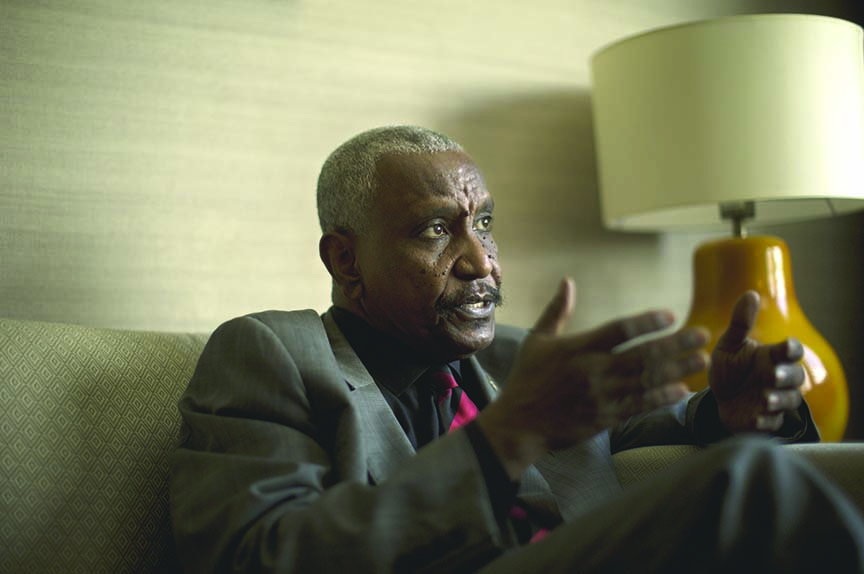
AP, Cairo :
Sudan’s new, transitional authorities have six months to make peace with the country’s rebels under a power-sharing deal reached this summer between the military and the pro-democracy movement following the ouster of longtime autocrat Omar al-Bashir in April.
If they fail to do so, it could undermine the deal and put the country’s fragile transition in jeopardy.
Talks with the rebels are to officially start Monday in neighboring South Sudan’s capital. Sudanese government officials met informally with a rebel leader in Juba this week to prepare for the talks. This came after some rebel groups signed a draft agreement in Juba last month, detailing a roadmap for the talks, trust-building measures and an extension of a cease-fire already in place.
Here is a look at what’s at stake in Sudan and for the country’s main rebel groups:
Since its independence from British colonial rule in 1956, Sudan has been convulsed by long rebellions and fighting between the mostly Christian and animist south and the Muslim and Arabized north.
The country’s longest internal conflict, a civil war that spanned decades, led to South Sudan gaining independence from the north in 2011.
However, in the 2000s, Sudan was most known for al-Bashir’s brutal repression of an uprising in the western Darfur region, where pro-government militias known as the Janjaweed became notorious for their atrocities and al-Bashir himself was indicted by the International Criminal Court for war crimes and genocide.
Sudanese rebels have for years fought al-Bashir’s loyalists, not just in Darfur but also in the southern provinces of Blue Nile and South Kordofan.
The rebels did not sign on to the power-sharing deal with the military, reached in July, though they have observed a cease-fire since before al-Bashir’s overthrow, in solidarity with the protest movement.
Ahead of Monday’s talks in Juba, Khartoum has been in a flurry of diplomacy, with Sudanese leaders visiting France, Saudi Arabia and the United Arab Emirates recently to enlist their support.
The Sudan Revolutionary Front was established in November 2011 following fighting in South Kordofan and Blue Nile provinces that broke out after South Sudan’s secession from Sudan.
It’s an alliance of rebel groups in the region, including the Justice and Equality Movement, the Sudan Liberation Army-Mini Minawi, named after its leader, and a faction of the Sudan People’s Liberation Movement-North, led by Malik Agar.
The Sudan Revolutionary Front joined the protest movement against al-Bashir but did not fully support the power-sharing deal with the military.
It did, however, engage in talks with protest leaders and the generals before and after the August signing of the power-sharing deal.
SRF leader Yesir Arman has called for a role in the transitional government , and wants its fighters to be included in the country’s military, something the Sudanese generals are unlikely to accept.
The Sudan Liberation Movement-North split in 2017 into two factions, one led by Abdel-Aziz al-Hilu and the other by Agar, which later joined the Sudan Revolutionary Front.
Al-Hilu’s movement is Sudan’s largest single rebel group and is active in the Blue Nile and South Kordofan provinces, where it controls significant chunks of territory.
Since al-Bashir’s ouster, al-Hilu has refused to hold talks with either the military council or the pro-democracy movement, saying vaguely he would only engage with a transitional government “backed by the Sudanese people.”
Al-Hilu has called for a secular state with no role of religion in lawmaking, the disbanding of all al-Bashir’s militias and the re-vamping of the country’s military.
The group has said if its demands aren’t met, it would call for self-determination in areas it controls.
This group is led by Abdel Wahid al-Nur and it also rejected the transitional government, staying out of preparatory talks in September between Khartoum representatives and the rebels in Juba.
Al-Nur has called for the government to first clean up house, including disbanding al-Bashir’s militias and his National Congress Party. He also wants al-Bashir to be handed over to the International Criminal Court.
Sudanese Prime Minister Abdalla Hamdok met with al-Nur in Paris last week in efforts to have him join the upcoming talks but al-Nur again rejected the proposal.
The initial agreement reached in September in Juba between Khartoum and the rebels, dubbed the Declaration of Principles, envisaged trust-building measures by the government, such as the release of war prisoners and dismissing sentences and charges against rebel leaders.
Since then, the authorities have dismissed the death sentences against eight leaders of al-Nur’s group and released more than a dozen prisoners from Agar’s faction. They also delayed the formation of the parliament and the appointment of provincial governors, to allow time for the rebels to come on board.
Suliman Baldo, a senior researcher with the Washington-based Enough Project, a non-profit organization, said it will be tough to find a common political ground, given that there are Islamic-leaning rebels like the Justice and Equality Movement, and others who seek a secular government, like al-Hilu’s movement.
Also, finding a way to get al-Nur’s movement to the negotiating table will be critical, Baldo said.

